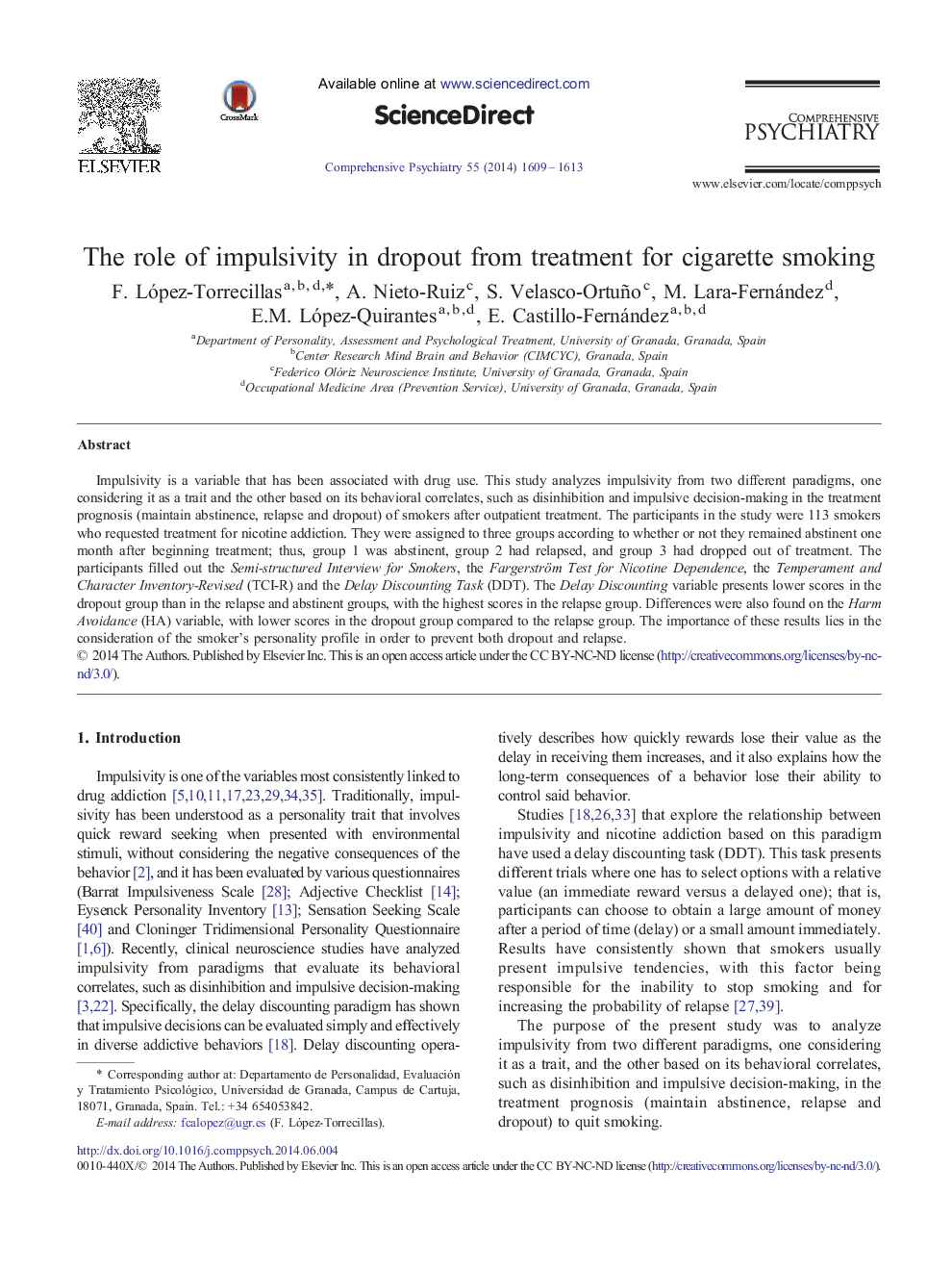| Article ID | Journal | Published Year | Pages | File Type |
|---|---|---|---|---|
| 10297541 | Comprehensive Psychiatry | 2014 | 5 Pages |
Abstract
Impulsivity is a variable that has been associated with drug use. This study analyzes impulsivity from two different paradigms, one considering it as a trait and the other based on its behavioral correlates, such as disinhibition and impulsive decision-making in the treatment prognosis (maintain abstinence, relapse and dropout) of smokers after outpatient treatment. The participants in the study were 113 smokers who requested treatment for nicotine addiction. They were assigned to three groups according to whether or not they remained abstinent one month after beginning treatment; thus, group 1 was abstinent, group 2 had relapsed, and group 3 had dropped out of treatment. The participants filled out the Semi-structured Interview for Smokers, the Fargerström Test for Nicotine Dependence, the Temperament and Character Inventory-Revised (TCI-R) and the Delay Discounting Task (DDT). The Delay Discounting variable presents lower scores in the dropout group than in the relapse and abstinent groups, with the highest scores in the relapse group. Differences were also found on the Harm Avoidance (HA) variable, with lower scores in the dropout group compared to the relapse group. The importance of these results lies in the consideration of the smoker's personality profile in order to prevent both dropout and relapse.
Related Topics
Life Sciences
Neuroscience
Biological Psychiatry
Authors
F. López-Torrecillas, A. Nieto-Ruiz, S. Velasco-Ortuño, M. Lara-Fernández, E.M. López-Quirantes, E. Castillo-Fernández,
